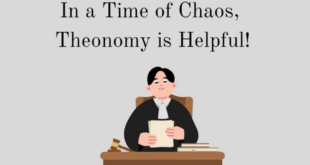So far, we have looked at God’s wrath as not just set in the Old Testament but is actually in fact throughout Scripture (Part 1). In the last part, we looked at what the purpose of God is that is seen throughout Scripture. In this final part, we’re going to look at what those implications are for us today. Here are three implications for us to consider.
1. Shadows of Things to Come
The Old Testament contains a large amount of material that were shadows of things to come: most being fulfilled in Christ, but also others still pointing to a reality that is to come. When we see the judgment of God in the Old Testament, although the narratives/literature is not written directly to us in our time, it is written for us. This is important. The Bible is saying something about where we live right now, although the situation/circumstances may be different than that of the original audience. So when we see the violence of the Old Testament, our place is not to institute those circumstances into our day, but rather as, “what does this say both about God and what does it mean for us today?”
2. Covenant
The study of Covenant History is so important in Scripture. Think of Covenant events in the Bible as being huge steps up a staircase, each one building on each other but not necessarily the same as the preceding or even including all aspects of the prior covenant (covenant meaning an agreement or pact between two parties, and if broken, it could mean death). Major Covenants of the Bible timeline include Adamic, Noahic, Abrahamic, Mosaic, Davidic, and New Covenants. So, when reading a portion of Scripture, an important question to ask is, “where am reading in Covenant history?”
Also what is important to consider is where we are in covenant history. Jesus brought about the New Covenant era, which will extend until the consummation of His reign over the entire universe. So we are not necessarily to look back at all aspects of a prior covenant era and institute them into our day and age. For instance, most men would be in trouble in regards to shaving their beards, which was instituted in the Mosaic Covenant, etc. So in the first article, we looked at Deuteronomy 13:5-18 (go back and review that from part 1 if needed). This would have been written during the Mosaic Covenant where God is preparing His people to establish a Theocracy. We do not live in the same era, we do not live in a Theocracy (although, after the final Judgment God will definitively rule over all creation- this was a shadow of events to come). We live in the New Covenant era: here we see from Jesus’ teachings that we are called to love our enemies and to accept persecution and affliction (Matthew 5:43-48, 2 Timothy 3:12). We do this knowing that God will someday rule over creation, and justice will be rightfully served from God, not from us.
3. The Kindness and Severity of God
J.I. Packer’s book Knowing God is such an incredible read. Packer discusses the verse from Romans 11:22 ESV, “Note then the kindness and the severity of God…” Packer discusses that if we begin to separate both the kindness and severity of God we actually begin to skew key features of His attributes. As we’ve observed, God is loving and merciful even to completely undeserving sinners and yet He is also perfectly righteous and justified in carrying out His judgments against those creatures. Disconnecting these is disastrous, and can be seen in much of the theology taught in churches today. If we’re going to teach all of Scripture, we have to see that both the God in Deuteronomy, in the Gospels, and in Revelation, are in fact the same God, with the same objective. This is such a critical point to understand.
To understand all of Scripture, we have to see that there is in fact a Sovereign King who will rule over all creation perfectly. His judgment is in fact coming, and we are in a time of mercy and grace. The New Covenant era is a time of repentance, a time of turning away from our rebellion and towards the King that will rule definitively (Revelation 16:5-7, 9, 11). For the Christian, the time is not to instill a Theocracy by force/violence or believe that a governmental power is going to rule in place of God. Our job is to do as Jesus commanded until He returns: to go into the world and preach the Good News of the Kingdom of God, calling people to repent and turn their allegiance to the one true King.
-Austin
 Getting Job-ed
Getting Job-ed


